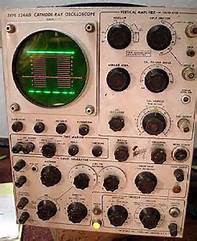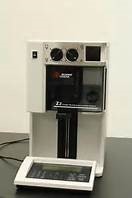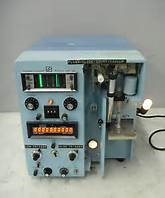Retiring Laboratory Equipment and Supplies
University policy mandates that all equipment purchased with University funds be either redistributed within the University or referred to Surplus Property for final disposition. This includes scientific equipment, laboratory furniture and scientific or clinical supplies which have not been used.
 What this policy means is even that 1960-era oscilloscope that you could not imagine having any current use just can’t be discarded with your normal trash. What this policy means is even that 1960-era oscilloscope that you could not imagine having any current use just can’t be discarded with your normal trash.
In order to maintain a safe environment for campus personnel, it essential that all potential hazards be identified and addressed prior to referring laboratory or clinical equipment/supplies to Surplus Property. As a starting point, all cabinets and drawers must be thoroughly inspected and must be free of any biological chemical or radiological material. Under no circumstance should individual containers of chemical or radiological materials, regardless of size, be shipped to Surplus Property with any surplus item. This also includes used biological materials including potentially contaminated petri plates, pipettes, cuvettes or media flasks or vials. The following specific safety concerns must addressed prior to requesting a pick-up by Surplus Property: Biohazards:
-
Biosafety Cabinets: all surfaces of biological safety cabinets must be thoroughly disinfected using a freshly prepared, EPA-approved disinfectant. High-Efficiency Particulate Air (HEPA) filters must be disinfected and removed from the unit.
-
Centrifuges: all external and internal surfaces of centrifuges used for biological materials must disinfected using a freshly prepared, EPA-approved disinfectant.
-
Sharps: Any sharps item outside its original packaging must be discarded and treated as if it were a contaminated sharps. This includes syringes (with needles attached), scalpels and lancets.
-
Universal Biohazard Labels: All universal biohazard labels must be either removed from the equipment or be defaced in such a manner that it is clear that no biohazard is present.
-
Other Equipment and Supplies: Any other equipment or supplies used in a research or clinical setting which could have been contaminated with potentially infectious materials (including blood or other body fluids) must be thoroughly disinfected using a freshly prepared, EPA-approved disinfectant.
Chemical Hazards:


Beckman Coulter Cell Counter Elzone 180 Particle Counter
-
Chemical reagents are to be removed from any processor or analyzer. This includes developers and/or fixers in automated photo or x-ray developers. It also includes reagent kits from automated analyzers, processor or synthesizers.
-
All equipment is to be free of any obvious chemical contamination.
-
All compressed gas cylinders must be removed and either returned to the distributor or referred to EHS as described below.
-
Dead battery packs are to be removed from equipment. Contact EHS at 274-2005 if you have questions about the battery packs.
-
Radiological Hazards
-
Any equipment or supplies used in a research or clinical setting which could have been contaminated with radiological materials (including any equipment with a universal radiation hazard symbol) must be thoroughly decontaminated and surveyed to ensure the equipment is free of radiological contamination.
-
All universal radiation hazard labels must be either removed from the equipment or be defaced in such a manner that it is clear no radiological hazard is present.
If you have questions about retiring laboratory equipment or supplies please contact EHS at 274-2005 for additional guidance.
|